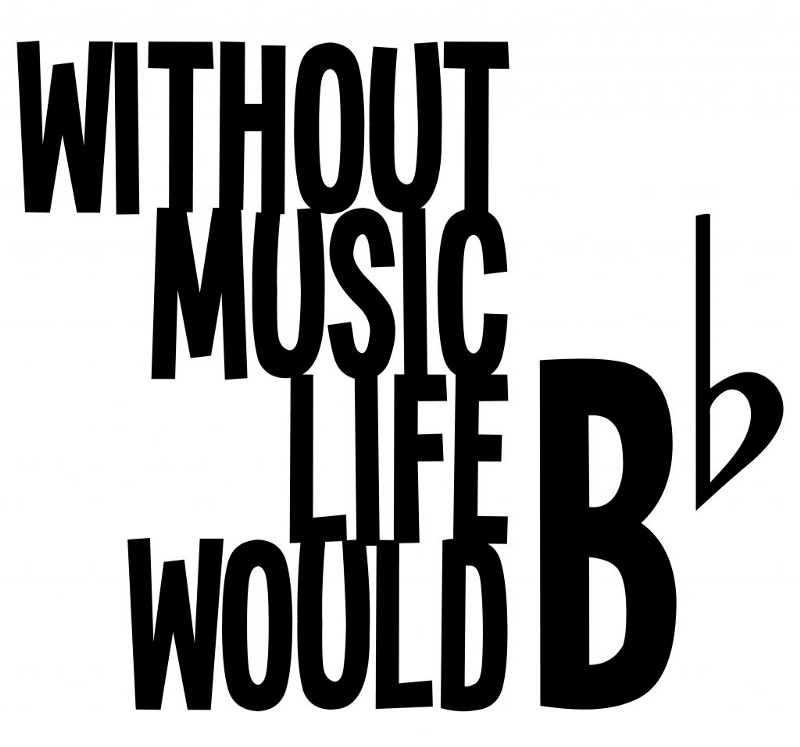“Life would be a slow bleeding to death were it not for poetry.”
Going by the looks of it, music appears as a tremendously serious affair that commands to be attended with elaborate deliberations and profound musical skills. Well, we cannot completely steer away from accepting this, but the crux of the matter is that music is meant to fundamentally address matters and invoke emotions that lie intrinsically embedded both in our conscious and subconscious. Even though the music was initially treated as the only medium of communication back when people hadn’t developed the faculty of language, its countenance and influence changed with time. As it evolved into the contemporary forms, composers started implementing bits of genial humour and satire with an aim to move past its conventional constrictions and entertain people in the most endearing ways.
It is no brainer that music is capable of meddling with our senses as soon as it reaches our ears and acquaint us with a feeling that far from complying with the regular, opens doors into paraphernalia of wonders. Where words fail to justify our passions and sentiments, music takes over; the perception of fulfillment stemming from it abridges the lengthy physical distance between us and the surrounding world. Coming back to our consideration here, that is, music as an entertaining and humorous piece of art, we cannot help but draw the instance of the court minstrels or jesters whose only responsibility was to amuse people with their music, puns, tricks, and merry-making dances. Nevertheless, as we have already mentioned that music has come way since its inception, and currently calls for a few other constituents apart from the rudiments to construct a piece that delivers comedy and entertainment all at once.
Humor as prevalent in opera and classical music
For most of you who don’t know, during the 18th century, there were two essential subdivisions of opera namely the serious and comic opera. Nevertheless, let us point out that here comic opera doesn’t necessarily denote humorously but, was directed towards a happy ending and unison. This characteristic resembles a comic play where regardless of the direction in which the plot treads it, the ending exhibits all the characters coming together in harmony and marking the onset of a happily-ever-after. Additionally, serious opera wasn’t entirely restricted in the realms of grave subjects; some of them were comprised of a few minutes of “light relief”. It was Italy that first drew a definite line between these two genres and was later adopted by France, Austria and a fair portion of Europe.

Likewise, classical music contributes its own share in perpetrating humour and entertainment amongst its listeners. Some specimens of this genus finely amalgamate dark humour and parody with its light-hearted witty counterpart of the same. As it is evident from their denominations itself that the categories were delineated to serve two dissimilar motives and interestingly, they varied in treatment too. The chords, melodies, rhythm, harmony and all the other components of music were distinct from one another too and it was principally these details that made way for their impact on the listeners.
Adapting music as a subject of comedy
Another intriguing thing that should be highlighted here is the verity that sometimes the genres of music allow a vent for comedians to use them as a part of their parody and this prospect arises from its seriousness and this is the case especially with classical music. Its strict routine and norms effectively establish the platform for this humour. Quirky riddles, super-fast tempo, elated tone, and gentle satire are some of the dominant components that define comical music. Furthermore, a part of music’s humour arises from the arrangement and funny sounds of the instruments used in it. According to experts sounds that will compel the listeners to smile or laugh at them are that of certain body functions and the ones emitted by brass instruments that are capable of fashioning an incredibly low note. Another source of humour and entertainment emerges from the versatility and shared recognition. There are some cult pieces that common amongst people from every corner of the world because of their frequent appearance on television commercials and the like. Now, these derivations from the original track don’t always have to be the same- in some, the melody and rhythm remain identical with the fundamental one while the words and theme are modified to suit the topic. The goal is to put forward a funny reference point and imprint itself in the mind of the audience via the medium of entertainment.
Its impacts
All these factors when considered collectively focus on tickling the funny bone of man and purge their hearts of the distresses rooting from the unvarying ordeals of everyday life. Even if the music is not particularly humorous in the true sense of the term, it must at least leave the listeners with a sense of contentment and satisfaction. This brings us to the major point of distinction between traditional music and the one which specifically inflicts entertainment; in the latter category, the notions of philosophy are slightly veiled when contrasted against the former. Nonetheless, philosophy indeed exists but in a way that inspires us to think but through ear-to-ear laughter and slight prompting. When the humorist transforms himself into a philosopher, he repudiates to take himself too seriously and this passes on to the auditors.
The bottom line
When all the orders of the society collapse, it is the only music that rises like the phoenix and justifiably so. We cannot strictly demarcate music as funny outside of the social context in which it arises at the first place, but its exaggerations are sometimes deliberately introduced in the tracks or treated separately by other artists to make people laugh, but the bottom line here is that they are all inter-related. Keeping everything else aside, music doesn’t spurn creativity around it to explicitly outline changes and impose them on a man like literature but strives at balancing all the components of life and its stimuli to flow into a pleasurable pool of recreation and amusement.
Last but not least, don’t forget to…

